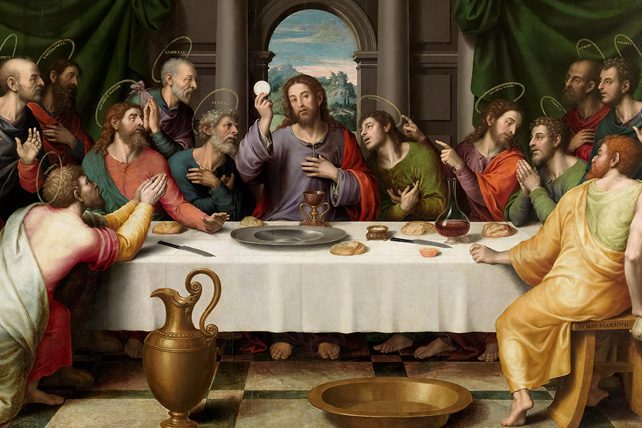The Last Supper is one of the most iconic moments in Christian history. It was a meal that carried profound meaning, marking the final gathering of Jesus and His disciples before His crucifixion. Beyond being a historical event, it continues to hold deep spiritual and theological importance for believers today.
A Moment of Profound Symbolism
The Last Supper was not an ordinary meal. It was a Passover feast, but Jesus transformed it into something far greater. Every element of that evening carried significant meaning:
- Bread and Wine – Jesus broke bread and shared wine with His disciples, symbolizing His body and blood. This act established what is now observed as Communion or the Eucharist in Christian traditions.
- Betrayal Foretold – During the meal, Jesus revealed that one of His own disciples would betray Him, demonstrating His divine knowledge and the fulfillment of prophecy.
- A New Covenant – Jesus spoke of a new covenant, signifying that His sacrifice would offer redemption to all who believe in Him.
- A Glimpse of Heaven – Jesus also hinted at the future heavenly banquet, reinforcing the hope of eternal life for His followers.
The Institution of Holy Communion
One of the most lasting effects of the Last Supper is the institution of Holy Communion. When Jesus said, “Do this in remembrance of me” (Luke 22:19), He established a practice that Christians still observe today. The significance of the Last Supper in this context includes:
- A Reminder of Christ’s Sacrifice – Communion serves as a regular reminder of Jesus’ suffering and His love for humanity.
- Spiritual Nourishment – Many believe that partaking in Communion strengthens their faith and deepens their connection with Christ.
- Unity Among Believers – The practice unites Christians across denominations, reinforcing their shared faith and commitment.
- A Reflection of Grace – Communion is not just a ritual but a moment of grace, where believers experience God’s presence and forgiveness.
A Call to Humility and Service
During the Last Supper, Jesus did something unexpected—He washed the feet of His disciples. This act was traditionally performed by servants, yet Jesus, the Son of God, took on the role of a servant to teach a powerful lesson:
- Humility – Jesus demonstrated that true leadership is rooted in humility and servanthood.
- Love for Others – He instructed His followers to love and serve one another, setting a model for Christian living.
- The Greatest Commandment in Action – This act embodied the teaching that loving others is central to faith.
- A Challenge to Pride – By washing the feet of His disciples, Jesus dismantled any notions of superiority, teaching that all are equal before God.
RELATED: Clarifying the Mysteries: Questions People Ask About the Last Supper
The Role of the Last Supper in the Passion Narrative
The Last Supper was not an isolated event—it was intricately connected to the Passion of Christ. It set the stage for the crucifixion, offering a final moment of fellowship before the suffering Jesus was about to endure.
- A Preparation for the Cross – Jesus’ words and actions during the Last Supper prepared the disciples for what was to come, emphasizing that His death was part of God’s redemptive plan.
- A Test of Faith – As Jesus predicted His betrayal and denial, the disciples were challenged to remain steadfast in their belief, even in the face of fear and uncertainty.
- The Fulfillment of Prophecy – The events of the Last Supper aligned with Old Testament prophecies, reinforcing Jesus’ identity as the Messiah.

